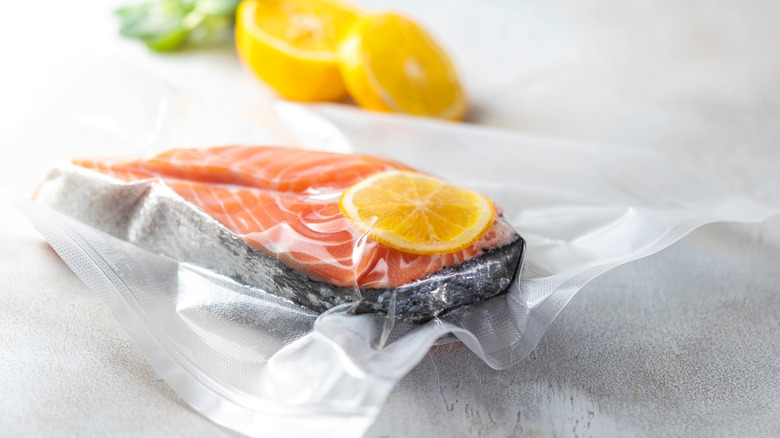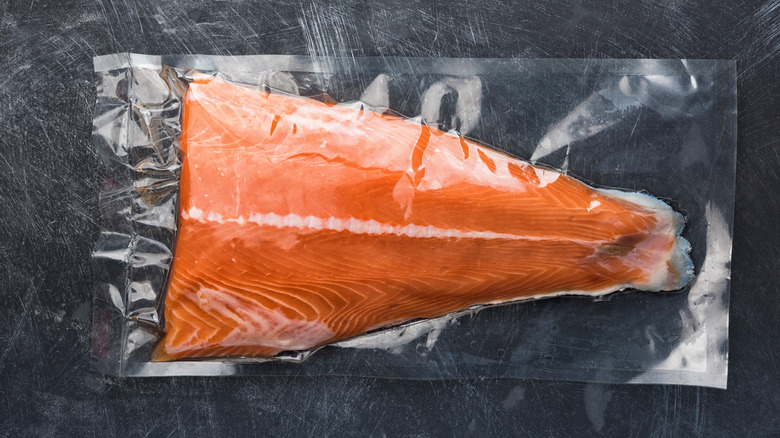The Mistake You Should Avoid When Freezing Fish
So you just cooked up a batch of your favorite baked halibut or grilled some amazing Chilean sea bass, but now you have too many leftovers to eat in the next few days (the USDA recommends only storing cooked seafood in the fridge for three to four days). Or, maybe you got a great deal on your favorite, fresh-caught Alaskan salmon from a local purveyor, but there's no way you're going to cook it all before it spoils. What's a home cook to do?
You can easily freeze your leftover cooked fish or fresh fish, but you'll want to take care. There are a lot of common mistakes when it comes to freezing fish — mistakes that can mean your fish is either unsafe to eat, or just not as tasty as it could be. The two factors you want to avoid at all costs, though? Moisture and air. Both will result in a decrease in quality as your fish sits in the freezer.
Try vacuum sealing, glazing, or cling wrap
There are two main storage options when it comes to properly freezing your fish. You can either vacuum seal your fish for optimum freshness, or you can wrap your filets in a tight plastic bag or cling wrap. Food & Wine suggests drying your filets before either, to avoid any of that pesky moisture. If you don't want to invest in a vacuum sealer, or if you're freezing cooked rather than raw fish, you can wrap your fish in cling film and then put that bundle in a plastic bag, says The Spruce Eats.
The Spruce Eats outlines an additional (though more time-consuming and less popular) form of freezer storage, called glazing. To glaze your fresh fish, you'll want to dip the fish in water, let the filets sit in the freezer, on a sheet pan, until frozen, then repeat until you've created a quarter-inch layer of ice around each filet. Then, store the glazed fish in a plastic bag.
However, even if you've stored your fish safely away in the freezer, don't assume it's good for an indefinite amount of time. Food & Wine recommends consuming frozen fish within 15 days, though technically it is possible to safely consume fish for up to five months after freezing. Meanwhile, The Spruce Eats cautions that certain fish last longer in the freezer than others before declining in quality. As a general rule: The fattier the fish, the shorter the shelf life.

